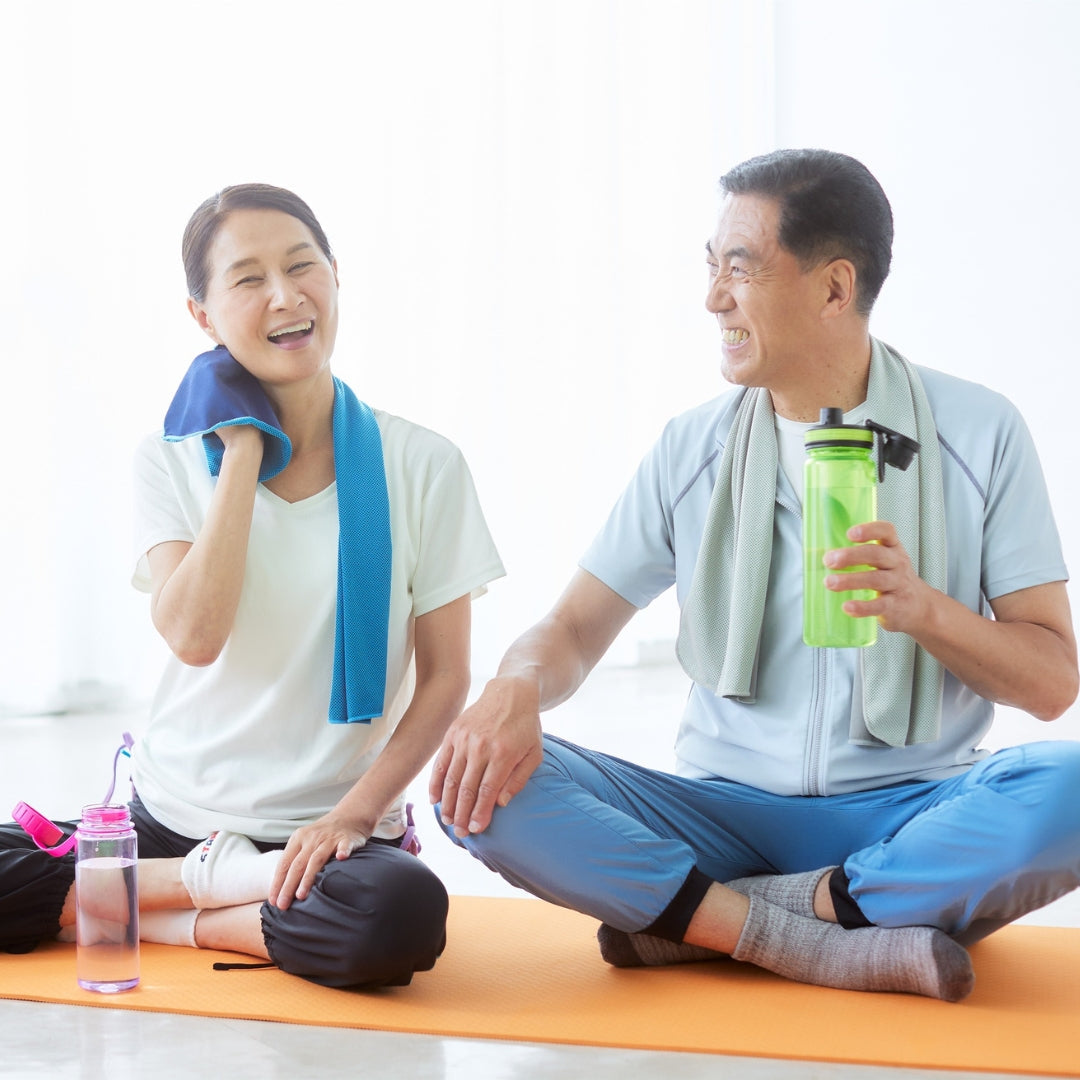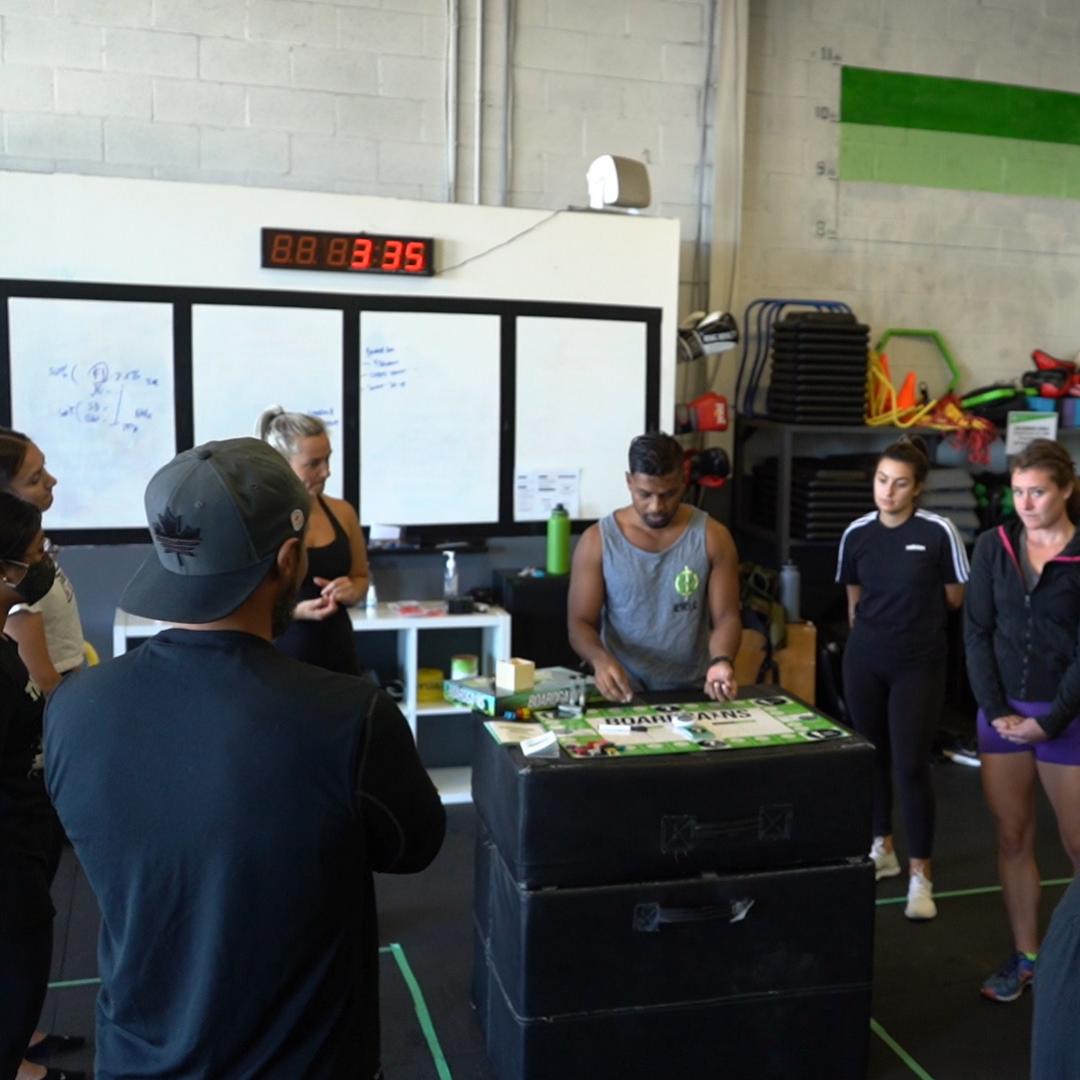In today's fast-paced world, couples often struggle to find quality time together. Between work, social obligations, and personal responsibilities, relationships can take a back seat. However, one powerful way to reconnect and strengthen bonds is by exercising together. "Sweat Together, Stay Together" is more than just a catchy phrase—it's a scientifically backed principle that shows how couples who work out together enjoy stronger emotional, mental, and physical connections.
From boosting endorphins to improving communication, working out as a duo can transform relationships in profound ways. Let's explore why couples who train together truly stay stronger together.
The Science Behind Couples Training Together
Exercising with a partner isn't just about staying fit—it has deep psychological and physiological benefits. Studies show that working out with a loved one enhances motivation, commitment, and overall relationship satisfaction. When couples engage in synchronized activities like running, lifting weights, or even yoga, their bodies release hormones like oxytocin, also known as the "love hormone." This strengthens the emotional connection, fostering a deeper sense of intimacy.
According to research published in the Journal of Social and Personal Relationships, couples who engage in joint physical activities report higher levels of relationship satisfaction and attraction compared to those who exercise separately.
Strengthening Emotional Bonds Through Fitness
Relationships thrive on shared experiences, and working out together creates meaningful moments. Whether it's celebrating small victories like lifting heavier weights or simply encouraging each other through a challenging workout, these shared experiences build lasting memories and emotional closeness.
Additionally, fitness goals create a sense of teamwork, making couples feel like they are working toward something bigger together. This sense of unity fosters emotional resilience, reducing conflicts and misunderstandings.
The Role of Endorphins in Relationship Happiness
Exercise is well known for its ability to release endorphins, the body’s natural mood elevators. These "feel-good" chemicals reduce stress, anxiety, and depression, making individuals happier and more positive. When couples experience this together, their overall happiness increases, creating a more joyful and harmonious relationship.
Ever noticed how great you feel after a workout? Imagine sharing that post-workout high with your partner—it's a natural way to keep the spark alive!
Increased Motivation and Accountability
One of the biggest benefits of working out with your partner is built-in motivation and accountability. When one person feels like skipping a workout, the other can provide the encouragement needed to stay consistent. This mutual support leads to better fitness results and strengthens the couple's ability to support each other in other areas of life.
Having a fitness partner also increases commitment. You’re less likely to cancel a gym session when you know your partner is counting on you. This dynamic reinforces the idea of teamwork and reliability in the relationship.
Better Communication and Teamwork
Effective communication is a cornerstone of a healthy relationship. Exercising together naturally improves both verbal and non-verbal communication. Whether it's spotting each other at the gym, coordinating a workout routine, or pushing through challenges together, couples learn to listen, respond, and support each other in a unique way.
Additionally, partner workouts like acro-yoga or tandem cycling require synchronization and trust, enhancing communication skills in a fun and engaging manner.
Enhancing Intimacy Through Fitness
Physical activity boosts self-esteem and body confidence, which directly impacts romantic relationships. Couples who work out together often feel more attractive and connected to their partners, increasing intimacy and passion.
Plus, the physical closeness in certain exercises, such as assisted stretching or partner yoga, fosters a natural sense of touch, further strengthening intimacy.
Overcoming Challenges as a Team
Every fitness journey comes with its challenges, whether it's an injury, a workout plateau, or a lack of motivation. Facing these obstacles together builds resilience and teaches couples how to support each other through difficult times. Just as in life, overcoming fitness struggles together strengthens the bond between partners.
Best Types of Workouts for Couples
Wondering which workouts work best for couples? Here are some great options:
- Strength training: Spotting each other during lifts and challenging each other with new weights.
- Cardio workouts: Running, cycling, or HIIT training together for an endurance boost.
- Yoga and stretching: Enhances flexibility and creates a deeper sense of connection.
- Outdoor activities: Hiking, rock climbing, or playing sports together keeps things fun and dynamic.
- Boardgains: This interactive fitness board game turns workouts into a fun, engaging challenge, keeping couples motivated and entertained while exercising together.
Common Mistakes to Avoid When Working Out as a Couple
While training together has numerous benefits, certain mistakes can hinder progress and even strain your relationship. Here are some common pitfalls to watch out for:
1. Over-Competitiveness
While a little friendly competition can be motivating, constantly trying to outdo each other may lead to frustration. Instead of competing, focus on mutual progress and support. Celebrate each other’s wins rather than trying to "one-up" your partner.
2. Pushing Too Hard or Not Enough
Each person has different fitness levels and endurance. If one partner pushes too hard, it could lead to burnout or injury. Conversely, if workouts are too easy, it may not feel productive. The key is to find a balance where both partners feel challenged yet comfortable.
3. Lack of Personal Space in the Gym
While working out together is great, spending every second in each other's presence at the gym can be overwhelming. Give each other space to focus on individual exercises when needed. A mix of partner workouts and solo routines is ideal.
4. Different Fitness Goals
If one person wants to build muscle while the other prefers endurance training, frustrations can arise. The solution? Incorporate a mix of activities that align with both goals. For instance, one day can be dedicated to strength training, while another focuses on cardio.
5. Criticism Instead of Encouragement
Constructive feedback is good, but constant critique can be discouraging. Instead of pointing out mistakes in your partner’s form or technique negatively, provide encouragement and helpful suggestions. Remember, you’re a team, not opponents.
By avoiding these mistakes, couples can maximize the benefits of training together while keeping their relationship strong and harmonious.
Practical Tips to Start Training as a Couple
Starting a fitness journey together can be exciting and rewarding. Here’s how to get started the right way:
1. Set Mutual Goals
Discuss what you both want to achieve. Whether it’s weight loss, muscle gain, increased endurance, or simply staying active together, having a shared vision keeps both partners motivated.
2. Choose Activities You Both Enjoy
Not everyone enjoys lifting weights or running. Find workouts that you both find fun—whether it’s hiking, yoga, swimming, or playing fitness-based board games like Boardgains to keep things exciting.
3. Establish a Schedule
Life gets busy, so planning workouts in advance ensures consistency. Treat workouts like important appointments that you both commit to.
4. Encourage, Don’t Criticize
Support and uplift each other rather than pointing out flaws. Positive reinforcement helps maintain motivation and confidence.
5. Track Progress Together
Keeping track of improvements—whether through a fitness app, a journal, or even before-and-after photos—keeps you both accountable and inspired.
6. Make Workouts Fun
Mix up your routine with challenges, partner exercises, and fun fitness games like Boardgains to add an element of excitement. Keeping things fresh prevents boredom and keeps you both engaged.
7. Celebrate Achievements
Reward yourselves for milestones achieved—whether it's a post-workout smoothie, a date night, or simply acknowledging each other’s progress. Small rewards reinforce positive habits.
FAQs About Couples Training Together
1. Can working out together improve our relationship?
Yes! Studies show that couples who engage in physical activities together experience increased relationship satisfaction, emotional connection, and overall happiness.
2. What if my partner and I have different fitness levels?
Modify workouts to accommodate both fitness levels. Choose exercises that allow customization, such as bodyweight workouts where intensity can be adjusted.
3. How often should we work out together?
It depends on your schedule, but 3–4 times a week is a great starting point. Find a routine that suits both of you without feeling overwhelming.
4. Can fitness help improve intimacy?
Absolutely! Exercise releases endorphins, boosts confidence, and increases attraction, all of which contribute to a stronger romantic connection.
5. What are some fun couples’ workouts?
Try acro-yoga, resistance band exercises, boxing drills, dance workouts, or interactive fitness games like Boardgains for a mix of fun and fitness.
6. What if we get frustrated with each other during workouts?
Take a step back and remind yourselves that fitness is a journey, not a competition. Focus on teamwork and encouragement rather than frustration.
Conclusion
Working out together is more than just staying fit—it’s a powerful way to strengthen your relationship. From boosting motivation to improving communication and intimacy, couples who train together truly stay stronger together. By setting goals, finding fun workouts, and supporting each other, you can build a healthier and happier relationship while achieving fitness success.
So, grab your partner, lace up your sneakers, and start sweating your way to a stronger bond today!










Leave a comment
This site is protected by hCaptcha and the hCaptcha Privacy Policy and Terms of Service apply.